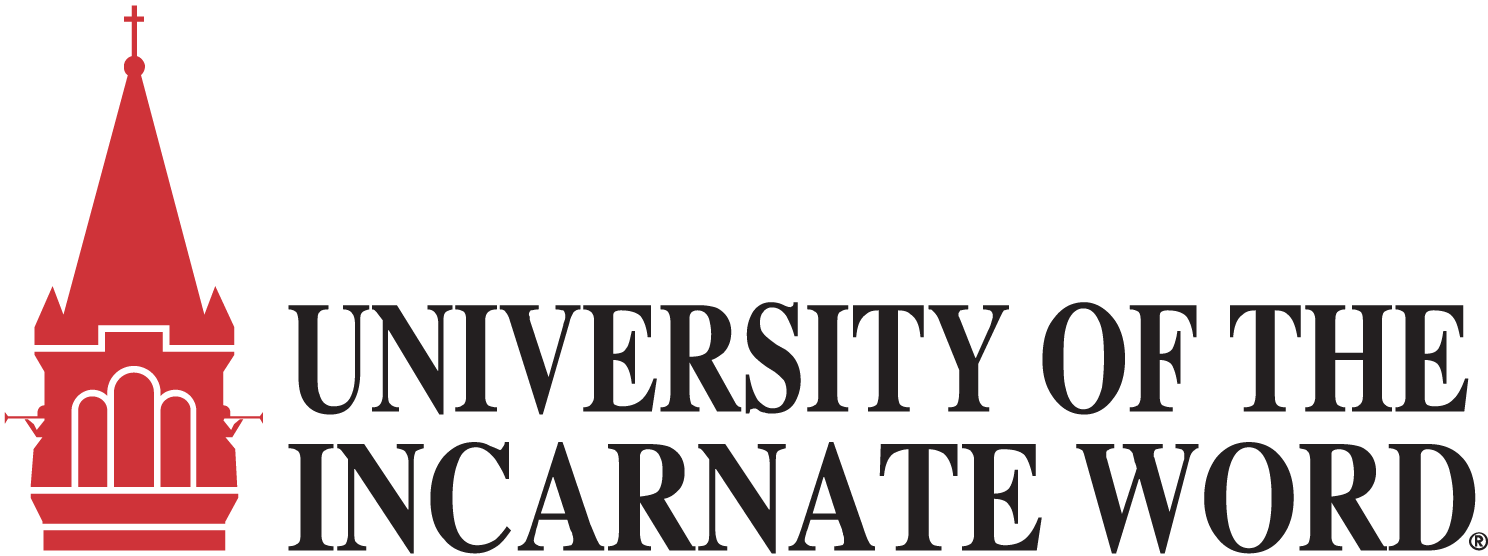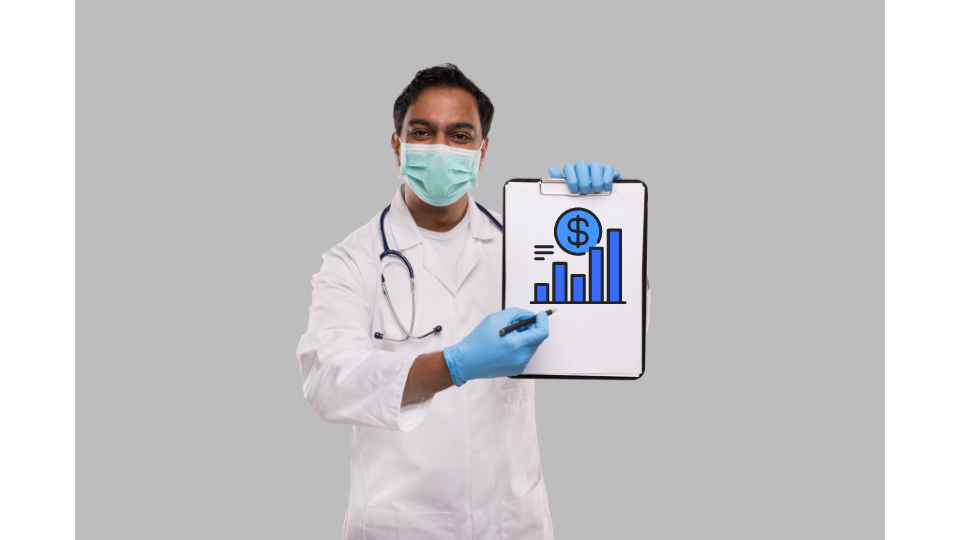-
GeneralGeneral
-
Health Policy and Management Homepage

Welcome to the Health Policy and Management course. This course is a comprehensive introduction to health policy and management including the policy-making process, ethics in public health, and communication and leadership skills. It provides students with the basic skills needed to contribute to the delivery and quality of healthcare for individuals and populations.
This Health Policy and Management course was funded in part by the University of the Incarnate Word and was developed with funding from the U.S. Centers for Disease Control and Prevention (CDC) through the Association for Prevention Teaching and Research. Like all NextGenU courses, it is competency-based, using competencies from the ASPPH: MPH Core Competency Model, CEPH, and WHO-ASPHER Public Health Competencies. This course uses learning resources from accredited, world-class organizations and governmental organizations such as the U.S. CDC, the U.S. National Institutes of Health (NIH), and the World Health Organization (WHO). The original course developer was Lindsay Galway, and our Advisory Group was: Ryan Allen, PhD; Kristian Dubrawski, PhD; Sylvia Struck, PhD; and Tim Takaro, MD, MPH, MSc. The course was redesigned by Alixandria Ali BSc, MPhil Candidate; Sergio Arancibia, MD; Pablo Baldiviezo Rodriguez, MD; Genikka Camille Gabral, B.ED, MSc; Jamila Conliffe MPH; Felix Emeka Anyiam, MPH, MScPH, DataSc; Leohrandra Graham, MSc; Jean Pierre Musabyimana, MSc (Biotech), MGHD; Hugo Andres Rojas Aldieri MD, MSc; and Valeria Reynolds, MD.
For publications on NextGenU.org’s courses’ efficacy, see NextGenU.org’s publication page. Subscribe to our newsletter to be notified of future updates, new courses, and to be part of our community.

There are 5 modules to complete, which provide an introduction to:
- Policies in Health Systems,
- Legal and Ethical Considerations for Policy Development,
- Needs Assessment and Program Planning,
- Evaluating Programs, Policies, and Addressing Problems, and
- Leadership and Communication in Policy Development.
The completion time for this course is estimated at 142 hours, comprising 29 hours of learning resources, 55 hours for time to study content and assimilation, and 58 hours of participating in learning activities and quizzes, to assist the learners in the synthesis of learning materials. This course is equivalent to 3 credit hours.
This course requires the completion of all peer activities. At the end of each module, there is a practice quiz of ten (10) multiple-choice questions. After you’ve completed each lesson, quiz, and learning activity, at the end of the course, you’ll have access to a final exam consisting of fifty (50) multiple-choice questions, and a chance to evaluate this course. Participants have up to three opportunities to take the final exam and achieve the required score of >=70%. Once you’ve passed that last test, you will be able to download a certificate of completion from NextGenU.org and our course’s co-sponsoring organizations. We keep all of your personal information confidential, never sell any of your information, and only use anonymized data for research purposes. Also, we are happy to report your testing information and share your work with anyone (your school, employer, etc.) at your request.
Engaging with this Course:
You may browse this course for free to learn for your personal enrichment; there are no requirements. However, to register for this course, it is required that learners obtain a college-level/bachelor's degree.
To PASS and Obtain a Certificate, a learner must first register for the course and then successfully complete:
- all the reading requirements;
- all quizzes and pass with a 80% with unlimited attempts;
- all peer activities;
- the final assessment;
- the final exam with a minimum of 80% and a maximum of 3 attempts;
- the self and course evaluation forms.
To obtain credit:- Complete all requirements listed above for the certificate, and
- Your learning institution or workplace should approve the partner-university-sponsored NextGenU.org course for educational credit, as they would for their learner taking a course anywhere.
NextGenU.org is happy to provide your institution with:
- A link to and description of the course training, so they can see all its components, including the cosponsoring universities and other professional organization cosponsors;
- Your grade on the final exam;
- Your work products (e.g. case study activities), and any other required or optional shared materials that you produce and authorize to share with them;
- Your evaluations -- course, and self-assessments;
- A copy of your certificate of completion, with the co-sponsoring universities and other organizations listed.
To obtain a degree, NextGenU.org co-sponsors degree programs with institutional partners. To obtain a full degree co-sponsored with NextGenU.org, registrants must be enrolled in a degree program as a student of a NextGenU.org institutional partner. If you think that your institution might be interested in offering a degree with NextGenU.org contact us.
We hope that you will find this a rewarding learning experience, and we count on your assessment and feedback to help us improve this training for future students.
Here are the next steps to take the course and earn a certificate.
- Complete the registration form.
- Take the pre-test.
- Begin the course with Module 1: Policies in Health Systems. In each lesson, read the description, complete all required readings and any required activity, as well as take the corresponding quizzes.
-
Module 1: Policies in Health Systems

Competencies covered in this module:
- Compare and contrast health and social service delivery systems among and between countries, which reflect diverse political, organizational, and legal contexts, and use these experiences to improve access to, regulation of, and fairness of health systems.
- Identify the main components and issues of the organization, financing, and delivery of health services and public health systems.
- Discuss multiple dimensions of the policy-making process, including the roles of ethics and evidence.
- Discuss the policy process for improving the health status of populations.
-
Module 1: Lesson 1: Introduction to Health Systems
Student Learning Outcomes:
Upon completion of this lesson, you will be able to:
- Define "health policy."
-
Define "management" as it applies to healthcare.
- Explain the importance of Healthcare Management.
- Describe the health and social service delivery challenges of low- and middle-income countries.
- Compare and contrast health and social service delivery systems among high-, middle- and low-income countries.
- Define the terms "political," "organizational," and "legal frameworks" as they relate to health and social service delivery systems.
- Explain the impact of the political context in the delivery of health and social services.
- Explain the influence of organizational context in the delivery of health and social services.
- Explain the importance of the legal context in the delivery of health and social services.
- Describe the characteristics of fair and regulated health systems.
- Provide examples of strategies for improving the equity and fairness of health systems.
- Using the example of substance use disorders, examine strategies to improve access to fair health systems.
17 URLs, 1 Forum -
Module 1: Lesson 2: Organization, Financing, and Delivery of Health Services
Student Learning Outcomes:
Upon completion of this lesson, you will be able to:- Define "public health delivery systems."
-
Explain how public health delivery systems are financed.
- Explain how public health delivery systems are organized and their main components.
- State the challenges experienced in organizing public health delivery systems.
- State the challenges experienced in financing public health delivery systems.
4 URLs -
Module 1: Lesson 3: The Policy-Making Process
Student Learning Outcomes:
Upon completion of this lesson, you will be able to:- Explain the main role of the actors involved in the policy-making process.
-
Understand the different steps of policy development.
- Explain the principles of evidence-based policymaking.
- Discuss the importance of evidence in the policy development process.
- Explain how policies affect population health.
- Describe the correlation between the policy process and population health.
- Reflect on how the steps of the policy-making process help in improving the health status of populations.
6 URLs -
Module 2: Legal and Ethical Considerations for Policy Development
Competencies covered in this module:

- Discuss multiple dimensions of the policy-making process, including the roles of ethics and evidence.
- Describe the legal and ethical bases for public health and health services.
- Review legislation, codes of ethical practice, and standards that affect public health professional practice in the interaction with individuals, organizations, and communities.
- Describe the legal and ethical bases for public health and health services.
- Compare and contrast the relevant international, European, and national laws or regulations to maximize opportunities to protect and promote health and well-being.
-
Module 2: Lesson 1: Ethics in the Policy-Making Process
Student Learning Outcomes:
Upon completion of this lesson, you will be able to:- Define the current concept of ethics in public health.
-
Describe the ethics, values, and principles related to public health.
- Discuss the role of ethics in the policy development process.
- Describe the current codes of ethical practice for health policymaking.
- Identify examples of substance use disorders legislation and their provisions for the individual, organizational, and community levels.
- Reflect on the ethical implications at the individual, organizational, and community levels of substance use disorder legislation.
6 URLs -
Module 2: Lesson 2: Legislation in Public Health
Student Learning Outcomes:
Upon completion of this lesson, you will be able to:- Define "legislation."
-
Identify the key components of human rights in public health.
- Explain how legislation applies to human rights in public health.
- Explore the role of legislation in maintaining the quality of public health.
- Identify major international legislation in public health (i.e., WHO Framework Convention on Tobacco Control and United Nations Convention on the Rights of Persons With Disabilities).
- Discuss the role of the International Health Regulations (2005) in international public health.
- Discuss how legislation can influence the progression and quality of public health.
- Compare national and international laws for health protection, promotion, and well-being.
8 URLs -
Module 3: Needs Assessment and Program Planning
Competencies covered in this module:

- Explain the methods of ensuring community health safety and preparedness.
- Assess the population needs, assets, and capacities that affect communities’ health.
- Apply awareness of cultural values and practices to the design or implementation of public health policies or programs.
- Discuss implementing health and social policies and plans that help guarantee the right to equitable and effective health care and policies enabling environments favourable to health.
- Discuss multiple dimensions of the policy-making process, including the roles of ethics and evidence.
- Apply principles of strategic planning and marketing to public health.
- Design a population-based policy, program, project, or intervention.
- Explain the basic principles and tools of budget and resource management.
-
Module 3: Lesson 1: Needs Assessment and Equitable Health Policies
Student Learning Outcomes:
Upon completion of this lesson, you will be able to:- Define "community health safety" and "preparedness."
-
Explain the importance of community health safety and preparedness.
- Describe different methods for ensuring community health safety and preparedness.
- Recognize health determinants within a community.
- Define needs, assets, and capacities in the context of community health needs assessments.
- Summarize the steps involved in performing needs assessments.
- Examine a community's health needs by examining its assets, capacities, and health determinants.
- Examine how cultural values and practices impact policies and programs.
- Explain considerations with respect to culture and values which should be made when developing public health policies and programs.
- Assess cultural values and practices during the design of a public health policy or program.
- Explain what is meant by "equitable and effective health care."
- Recognize the features of environments that are favourable to health.
- Recognize the term "social policies" as it relates to health.
- Explain the dimensions of policy implementation.
- Discuss how policies may ensure an equal and effective health care environment that favours a healthy setting.
14 URLs -
Module 3: Lesson 2: The Planning Process
Student Learning Outcomes:
Upon completion of this lesson, you will be able to:- Define "strategic planning."
-
Explain the importance of strategic planning in public health.
- Outline principles of strategic planning in public health.
- Explain the importance of marketing in public health.
- Summarize principles of marketing in public health.
- Discuss the application of strategic planning and marketing principles in program planning.
- Explain the key steps in designing a public health policy.
- Explain the key steps in designing a public health program.
- Explain the key steps in designing a public health intervention.
10 URLs -
Module 3: Lesson 3: Budgeting and Resource Management
Student Learning Outcomes:
Upon completion of this lesson, you will be able to:- Identify the basic principles of budgeting and the necessary tools.
-
Explain the importance of budgeting in public health.
- Identify the basic principles and tools of resource management.
- Explain the importance of resource management in public health.
- Understand the role of Human Resource Management in Healthcare.
- Describe the key accounting principles and common measures of performance for health policy development.
- Discuss how measures of performance can be used to improve planning and achieve goals in health policy.
7 URLs -
Module 4: Evaluating Programs, Policies, and Addressing Problems
Competencies covered in this module:
 Develop and implement strategies based on relevant evidence, legislation, emergency planning procedures, regulations, and policies.
Develop and implement strategies based on relevant evidence, legislation, emergency planning procedures, regulations, and policies.
- Select methods to evaluate public health programs.
- Evaluate policies for their impact on public health and health equity.
- Apply quality and performance improvement concepts to address organizational performance issues.
- Apply scientific principles and concepts to inform discussion on health-related, fiscal, administrative, legal, social, and political issues in the workplace.
- Apply “systems thinking” for resolving organizational problems.
-
Module 4: Lesson 1: Program Implementation and Evaluation
Student Learning Outcomes:
Upon completion of this lesson, you will be able to:- Explain the key components required for effective public health program implementation.
-
Propose an action plan for effective public health program implementation.
- Identify methods for the evaluation of public health programs.
- Examine the strengths and weaknesses of different methods in public health program evaluation.
- Explain the connection between evidence-based initiatives and policy achievement.
- Critique a public health policy for its impact on public health and health equity.
7 URLs -
Module 4: Lesson 2: Addressing Problems in Program Implementation
Student Learning Outcomes:
Upon completion of this lesson, you will be able to:- Describe common organizational performance issues in healthcare (health-related, fiscal, administrative, legal, and political).
-
Explain quality and performance concepts and models to improve organizational performance.
- Define the scientific principles that inform health management-related discussions in the workplace.
- Demonstrate the use of quality and performance improvement concepts to address organizational and performance issues.
- Explain the concept of systems thinking and why it is important for policymaking.
- Implement systems thinking to address organizational problems.
10 URLs -
Module 5: Leadership and Communication in Policy Development
Competencies covered in this module:

- Communicate health policy and management issues using appropriate channels and technologies.
- Propose strategies to identify stakeholders and build coalitions and partnerships for influencing public health outcomes.
- Demonstrate leadership skills for building partnerships.
-
Module 5: Lesson 1: Health Policy Communication
Student Learning Outcomes:
Upon completion of this lesson, you will be able to:
- Describe different channels and technologies for the communication of health policy and management issues.
- Explain effective strategies to effectively communicate health policy and management challenges.
- Demonstrate the ability to communicate health policy and management issues effectively, using appropriate channels and technologies.
1 URL -
Module 5: Lesson 2: Leadership Skills in Public Health
Student Learning Outcomes:
Upon completion of this lesson, you will be able to:- Explain the importance of stakeholders, coalitions, and partnerships in improving public health outcomes.
- Outline strategies for ensuring successful coalitions and partnerships among stakeholders.
- Propose a strategy to build coalitions and partnerships for policy development.
- Describe the key leadership skills necessary for building partnerships.
- Demonstrate leadership skills which can be effective for building partnerships.
4 URLs -
Final Assessment
Instructional Goals covered in this Activity
- Apply the principles of program planning, development, budgeting, management, and evaluation in organizational and community initiatives.
- Develop and implement strategies based on relevant evidence, legislation, emergency planning procedures, regulations, and policies.
- Design a population-based policy, program, project, or intervention.
- Advocate for political, social, or economic policies and programs that will improve health in diverse populations.
-
Course and Self Evaluation & Certificate
 In this section, you can provide feedback about this course to help us make NextGenU.org better. Once evaluations are completed, you will be able to download your certificate of completion.
In this section, you can provide feedback about this course to help us make NextGenU.org better. Once evaluations are completed, you will be able to download your certificate of completion.Click here give your feedback


